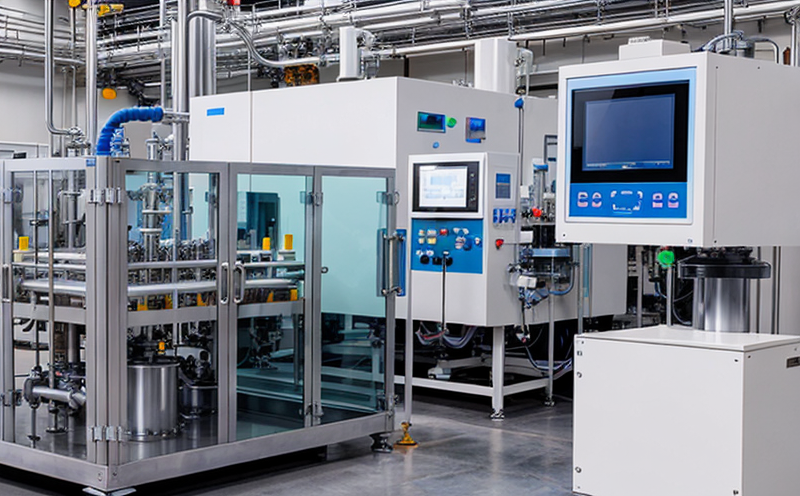
-
Pharmaceutical Compliance-
Pharmaceutical Ethics and Compliance-
Ethical Compliance in Pharmaceutical Manufacturing
We provide comprehensive solutions designed to help our clients mitigate risks, enhance performance, and excel in key areas such as quality, health & safety, environmental sustainability, and social responsibility.
Discover
For many years, our organization has been operating successfully, boasting modern laboratories that meet international standards. These laboratories are equipped with the latest technology devices and equipment, and we have built a strong team of experienced and trained personnel to operate them.
DiscoverWelcome to Eurolab, your partner in pioneering solutions that encompass every facet of life. We are committed to delivering comprehensive Assurance, Testing, Inspection, and Certification services, empowering our global clientele with the ultimate confidence in their products and processes.
Discover
-
Pharmaceutical Compliance-
Pharmaceutical Ethics and Compliance-
Ethical Compliance in Pharmaceutical ManufacturingEthical Compliance in Pharmaceutical Manufacturing: Ensuring Safety and Integrity
The pharmaceutical industry is one of the most highly regulated sectors globally, with a strong emphasis on ensuring the safety and efficacy of medicinal products. Ethical compliance is a critical aspect of pharmaceutical manufacturing, as it directly impacts the quality and integrity of final products. In this article, we will delve into the importance of ethical compliance in pharmaceutical manufacturing, highlighting key regulations, industry best practices, and real-world examples.
Why is Ethical Compliance Important?
Ethical compliance is essential in pharmaceutical manufacturing to ensure that products meet rigorous safety and quality standards. Non-compliance can have severe consequences, including:
Good Manufacturing Practice (GMP) focuses on ensuring the quality and integrity of medicinal products during manufacturing, processing, packing, or holding.
Good Clinical Practice (GCP) focuses on ensuring that clinical trials are conducted with high ethical standards, including protection of human subjects.
2. How do pharmaceutical companies ensure compliance with regulatory requirements?
Companies can implement a robust quality management system, provide regular training on regulatory requirements and industry standards, conduct audits and inspections to ensure adherence to guidelines, and foster a culture of transparency and accountability.
3. What are the consequences of non-compliance in pharmaceutical manufacturing?
Consequences include product recalls, regulatory fines and penalties, damage to reputation and brand equity, and risk of patient harm or even death.
4. Can you provide examples of pharmaceutical companies that have ensured ethical compliance?
Pfizer has implemented a comprehensive quality management system, while GSK has made significant efforts to increase transparency in clinical trials.
Conclusion
Ethical compliance is critical in pharmaceutical manufacturing to ensure the safety and integrity of final products. By understanding key regulations, industry best practices, and real-world examples, companies can maintain high standards and avoid severe consequences.

Electrical and Electromagnetic Testing
Electrical and Electromagnetic Testing: A Comprehensive Guide Introduction Electrical and electrom...

Hospitality and Tourism Certification
Hospitality and Tourism Certification: Unlocking Opportunities in the Industry The hospitality and ...

Renewable Energy Testing and Standards
Renewable Energy Testing and Standards: Ensuring a Sustainable Future The world is rapidly transiti...

Transportation and Logistics Certification
Transportation and Logistics Certification: A Comprehensive Guide The transportation and logistics ...

Agricultural Equipment Certification
Agricultural equipment certification is a process that ensures agricultural machinery meets specific...

IT and Data Center Certification
IT and Data Center Certification: Understanding the Importance and Benefits The field of Informatio...

Cosmetic Product Testing
The Complex World of Cosmetic Product Testing The cosmetics industry is a multi-billion-dollar ma...

Fire Safety and Prevention Standards
Fire Safety and Prevention Standards: Protecting Lives and Property Fire safety and prevention stan...

Railway Industry Compliance
Railway Industry Compliance: Ensuring Safety and Efficiency The railway industry is a critical comp...

Military Equipment Standards
Military Equipment Standards: Ensuring Effectiveness and Safety The use of military equipment is a ...

Consumer Product Safety
Consumer Product Safety: Protecting Consumers from Harmful Products As a consumer, you have the rig...

Trade and Government Regulations
Trade and government regulations play a vital role in shaping the global economy. These regulations ...

NEBS and Telecommunication Standards
Network Equipment Building System (NEBS) and Telecommunication Standards The Network Equipment Bu...

Pharmaceutical Compliance
Pharmaceutical compliance refers to the adherence of pharmaceutical companies and organizations to l...

Food Safety and Testing
Food Safety and Testing: Ensuring the Quality of Our Food As consumers, we expect our food to be sa...

MDR Testing and Compliance
MDR Testing and Compliance: A Comprehensive Guide The Medical Device Regulation (MDR) is a comprehe...

Product and Retail Standards
Product and Retail Standards: Ensuring Quality and Safety for Consumers In todays competitive marke...

Automotive Compliance and Certification
Automotive Compliance and Certification: Ensuring Safety and Efficiency The automotive industry is ...

Electromechanical Safety Certification
Electromechanical Safety Certification: Ensuring Compliance and Protecting Lives In todays intercon...

Energy and Sustainability Standards
In today’s rapidly evolving world, businesses face increasing pressure to meet global energy a...

Healthcare and Medical Devices
The Evolution of Healthcare and Medical Devices: Trends, Innovations, and Challenges The healthcare...

Chemical Safety and Certification
Chemical safety and certification are critical in ensuring the safe management of products and proce...

Construction and Engineering Compliance
Construction and Engineering Compliance: Ensuring Safety, Quality, and Regulatory Adherence In the ...

Battery Testing and Safety
Battery Testing and Safety: A Comprehensive Guide As technology continues to advance, battery-power...

Lighting and Optical Device Testing
Lighting and Optical Device Testing: Ensuring Performance and Safety Lighting and optical devices a...

Environmental Impact Assessment
Environmental Impact Assessment: A Comprehensive Guide Environmental Impact Assessment (EIA) is a c...

Aviation and Aerospace Testing
Aviation and Aerospace Testing: Ensuring Safety and Efficiency The aviation and aerospace industr...

Environmental Simulation Testing
Environmental Simulation Testing: A Comprehensive Guide In todays world, where technology is rapidl...

Industrial Equipment Certification
Industrial equipment certification is a critical process that ensures industrial equipment meets spe...

Pressure Vessels and Installations Testing
Pressure Vessels and Installations Testing Pressure vessels are a critical component of various ind...